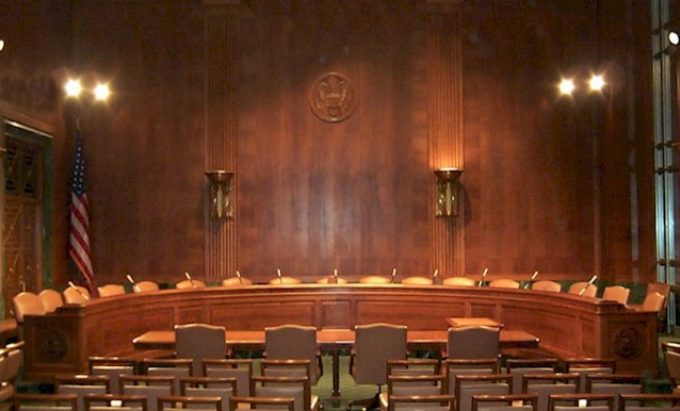
Senators push bill protecting interstate trade secrets amidst concerns over trolling
By Bhargav Srinivasan – Edited by Olga Slobodyanyuk
In October, Senators Orrin Hatch (R-UT) and Christopher Coons (D-DE) introduced pending legislation S. 1890 – “Defend Trade Secrets Act of 2015” (the Bill) to the Senate Judiciary Committee. If passed, the Bill would provide a federal civil cause of action for the misappropriation of trade secrets related to a products and services used in interstate commerce.
The Bill serves two primary purposes: (1) to provide pathways to injunctive and monetary relief that would prevent loss of evidence and economic harm to victims; and (2) to create a uniform standard for misappropriation of trade secrets.
In a recent article, The Hill notes that the Senators had in mind cyber theft from Chinese competitors when drafting the Bill. In September 2015, the Obama administration reached an agreement with China President Xi Jinping that neither country would support economic espionage on private firms. However, beliefs that the agreement is toothless have led proponents of the Bill to argue for its importance in fighting cyber theft.
Though the Bill has bipartisan support and is widely expected to pass, it faces criticism from some legal scholars who believe it could ignite an industry of “trade secret trolling.” In their open letter, 31 law professors explain that “[the] threat of a trade secret misappropriation action can and does have a chilling effect on collaborative innovation efforts between businesses and can be used by those who would rather compete in a courtroom than the marketplace to quell legitimate competition.” The letter further explains that such a bill would only add to well-established domestic trade secret law rather than address the fair concerns about cyber-espionage.
Such a view lies in sharp contrast to the legislators’ intention to create a more unified code of trade secret law in which businesses can use the statute to avail themselves of the right to – as opposed to expose themselves to – civil action.
Gene Quinn of IPWatchdog rebuts the claim that companies will resort to bullying each other in court under this bill using two counter-arguments. First, in the long history of existing state trade secret protections, there has been no successful model of trolling. Since all trade secret claims require proof of fault, they cannot be used to bully, Quinn argues. Next, he contrasts trade secrets to patents. While patents provide rights against the entire universe of those who might use them, trade secrets are not generally known, and so trade secret claims are limited to parties who share a nexus of information or operation. As such, the bullying that happens in large numbers does not happen in trade secret litigation.
Quinn’s response, however, does not examine the new level of protection through injunctive and damage-based relief that the Bill would introduce in the name of evidence preservation. Such pre-emptive measures would break with historical trade secret regulation to date, and large numbers of plaintiffs would not be needed to bully. In fact, the professors writing the aforementioned open letter argue that the imbalance of the Bill would lead to anti-competitive actions from business located in the very narrow nexus of similar businesses. The scholars further argue that there are potential ancillary, negative effects on the willingness of companies to collaborate and share information out of fear of litigation.